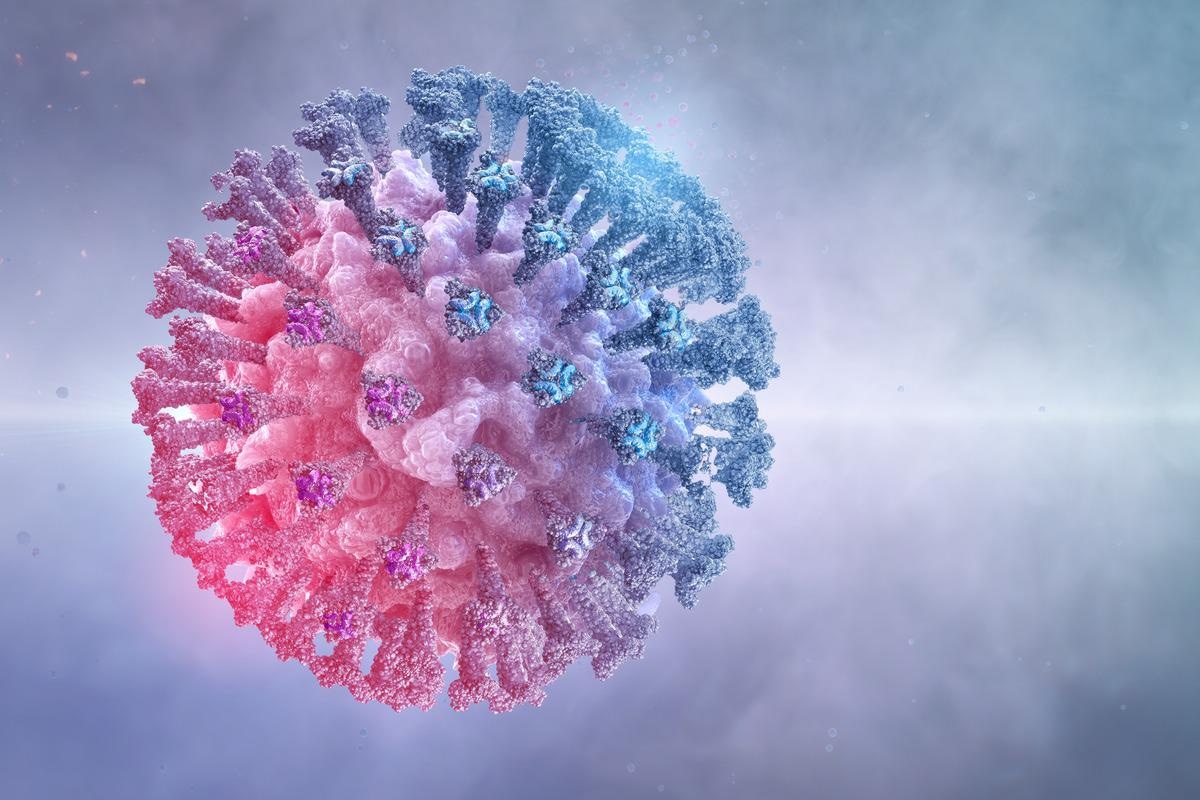In a recent study posted to the medRxiv* preprint server, researchers reported that coronavirus disease 2019 (COVID-19) reinfections could occur within 60 days of the initial infection.

Background
Severe acute respiratory syndrome coronavirus-2 (SARS-CoV-2) variants of concern (VOCs) have been detected in every country. The VOCs exhibit considerable antigen diversity relative to the ancestral SARS-CoV-2 strain.
The SARS-CoV-2 Omicron variant, which appeared in November 2021, has shown high antigenic drift and transmissibility, decreasing the antibody efficacy of sera from convalescent individuals and vaccinees. This waning of immunity has resulted in a significantly increased number of vaccine breakthrough infections and reinfections globally compared to previous COVID-19 waves.
The European Center for Disease Prevention and Control (ECDC) defines reinfections as two positive COVID-19 tests at least 60 days apart. However, many countries recommend against retesting within six months of an initial positive test. Therefore, there is a need to revise the guidelines and establish a consensus on retesting policies.
The study and findings
In the present study, researchers examined a COVID-19-positive patient, previously infected in December 2021 with SARS-CoV-2 Delta sub-lineage AY.43. One parent and a sibling of the patient were also infected. All three patients developed mild symptoms of COVID-19. The other parent was COVID-19-negative twice and received a booster vaccine one month ago.
The patient was admitted to a hospital two weeks later for surgery due to an unrelated condition. Systematic screening at the time of admission revealed a low SARS-CoV-2 viral load in the patient. This observation was interpreted as remnants from a previous infection (16 days ago). The patient tested positive during a preprocedural screening for readmission for the second-stage surgery. This time, i.e., 39 days post-Delta infection, the viral load was high, and the infection was due to the Omicron BA.1 variant. The patient was paucisymptomatic, and contact screening identified the patient’s sibling as positive with a low viral load. The boy’s mother tested negative, and the father was not (re)tested.
Next, early reinfections with SARS-CoV-2 Omicron BA.1 variant after Delta infection and Omicron BA.2 after BA.1 infection were estimated in Flemish Brabant, Belgium. About 56,831 SARS-CoV-2-positive cases were recorded between December 2021 and February 7, 2021, a period in which the Omicron BA.1 variant replaced the previously predominant Delta variant. Of these, 91 (0.16%) had the spike (S)-gene detected in the first sample suggesting Delta infection. In contrast, the second sample (in the same period) showed S-gene target failure (SGTF) indicative of reinfection with the Omicron variant.
Similarly, between January 1, 2022, and March 7, 2022, a period during which SARS-CoV-2 Omicron BA.2 replaced the BA.1 variant, over 48,820 positive cases were detected. Five patients demonstrated SGTF in the first sample, but S-gene was detected in the second sample. These observations, given the epidemiology, were suspected as Omicron BA.2 reinfection after BA.1 infection. The research team noted that the highest and lowest risks for early COVID-19 reinfections were among the non-vaccinated younger population (aged below 12 years) and among the boosted population, respectively.
Conclusions
The researchers reported early SARS-CoV-2 reinfections, classed as less than 60 days from initial infection, particularly among non-vaccinated, younger people. They confirmed early reinfection with Omicron BA.1 after Delta infection and reinfection with BA.2 post-BA.1 infection.
Moreover, in the older age group, non-vaccinated and vaccinated (non-boosted) individuals were at an increased risk of reinfections compared to boosted individuals. Based on these findings, the authors suggested a reconsideration of the duration of immunity offered by past SARS-CoV-2 infections, especially when a shift occurs between two sequential SARS-CoV-2 variants.
Further, the authors believed that retesting within 60 days of an initial positive test should not be deemed unnecessary, especially for young people.
*Important notice
medRxiv publishes preliminary scientific reports that are not peer-reviewed and, therefore, should not be regarded as conclusive, guide clinical practice/health-related behavior, or treated as established information.
- Louis Nevejan, Lize Cuypers, Lies Laenen, Liselotte Van Loo, François Vermeulen, Elke Wollants, Ignace Van Hecke, Stefanie Desmet, Katrien Lagrou, Piet Maes, Emmanuel André. (2022). Early SARS-CoV-2 reinfections within 60 days highlight the need to consider antigenic variations together with the duration of immunity in defining retesting policies. medRxiv. doi: https://doi.org/10.1101/2022.04.04.22273172 https://www.medrxiv.org/content/10.1101/2022.04.04.22273172v1
Posted in: Medical Science News | Medical Research News | Disease/Infection News
Tags: Antibody, Antigen, Coronavirus, Coronavirus Disease COVID-19, covid-19, Efficacy, Epidemiology, Gene, Hospital, immunity, Omicron, Research, Respiratory, SARS, SARS-CoV-2, Severe Acute Respiratory, Severe Acute Respiratory Syndrome, Surgery, Syndrome, Vaccine

Written by
Tarun Sai Lomte
Tarun is a writer based in Hyderabad, India. He has a Master’s degree in Biotechnology from the University of Hyderabad and is enthusiastic about scientific research. He enjoys reading research papers and literature reviews and is passionate about writing.
Source: Read Full Article
